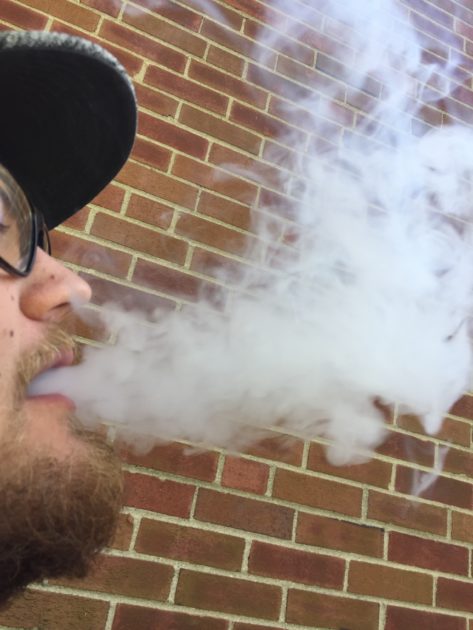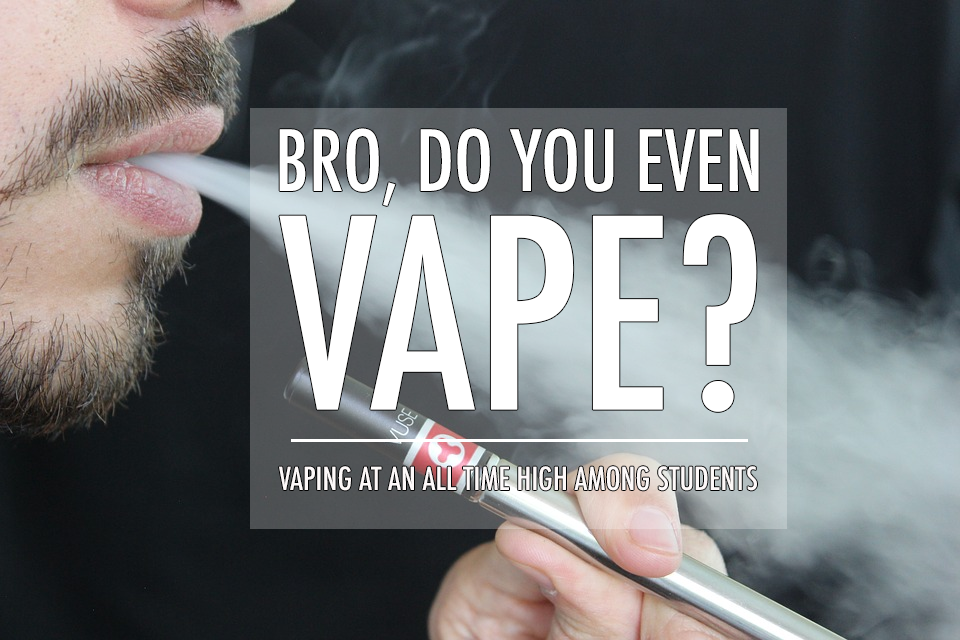The world of e-cigarette use has imploded in the last two months. Since August, reports of hospitalizations connected with the use of vape products have been increasing in frequency.
According to The Washington Post, numbers have climbed above 300 — with seven individuals ultimately dying from the sinister pulmonary illness that has left doctors puzzled about the cause.
These medical emergencies have drawn the focus of the federal government, and President Trump has joined the conversation to voice his support for a ban on flavored pods.
The heightened focus on the potential dangers of e-cigarettes comes after nearly two years of widespread acceptance. Even though the U.S. Food and Drug Administration issued its rule — giving the organization authority over the sale of e-cigarettes as tobacco products — on the industry in May 2016, the business of vaping has remained largely unregulated.

Introduced and marketed as a vehicle through which cigarette smokers could satisfy their nicotine addiction without the harmful health effects of inhaling smoke, e-cigarettes, led by Juul, the company that is now almost eponymous with the industry, have built an empire.
In 2018, Juul generated over $1 billion in revenue, and projected that their profits would nearly double this year.
E-cigarette use requires a vape pen and a replaceable pod. The devices are sleek, with Juul offering a limited-edition aqua color, and the pods are sold in a variety of flavors, from mango to cucumber to crème.
When the user inhales, the liquid in the pod is heated until it becomes vapor. Like traditional cigarettes, these pods can be pricey — a pack of four Juul Pods costs $15.99 when purchased online. Because of the cost, users have turned to refillable pods or knockoff brands sold on the street as a cheaper option.
The vape pods typically contain glycerin, flavoring, and nicotine, but in homemade pods this composition can be altered. A popular addition is THC, the psychoactive compound found in marijuana that produces the user’s “high.” The vaping-related deaths are believed to be linked to these pods containing THC.
Although e-cigarettes were originally intended to appeal to individuals who wanted to quit smoking, their actual consumer demographic quickly took a turn. Youth and young adults began vaping, and the trend spread quickly. According to the U.S. Center for Disease Control and Prevention, there was a 78 percent increase in vaping among high school students from 2017 to 2018, and a 48 percent increase among middle schoolers.
Youth vaping has elicited considerable concern in society. Eighteen states have raised the legal age to buy and use tobacco products, including e-cigarettes, to 21 — Ohio’s law takes effect in October. This initiative is supported by Juul, whose website sales are only to individuals over the age of 21, regardless of the state in which they reside.
Another avenue lawmakers are taking to limit youth vaping is to restrict access to pod flavors, which they claim encourage children to use.
New York is the first state to enact such a regulation, but President Trump’s remarks have hinted at a nationwide FDA ban.
Again, this route seems to have some Juul support — in November 2018 the company stopped shipping flavored pods to their retailers, although sales were not restricted online.
In a Twitter poll conducted by The Chimes, 17% of respondents said that they vaped, and of that number, 40% felt that they were addicted.
When asked if they supported a ban on flavored vapes, 63% of students agreed.
The CDC recommends that while the investigation into vaping illnesses is ongoing, users refrain from purchasing products on the street or modifying the pods in any way.
If you have any symptoms such as chest pain, nausea, fatigue, or abdominal pain, contact a healthcare provider immediately.


